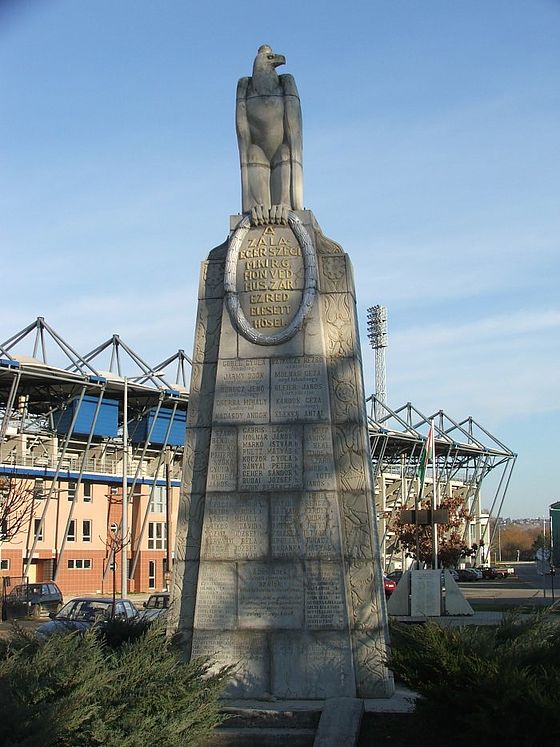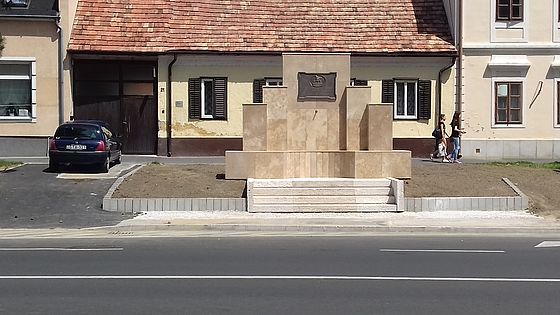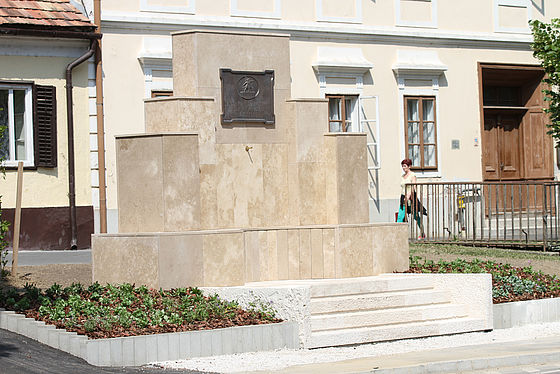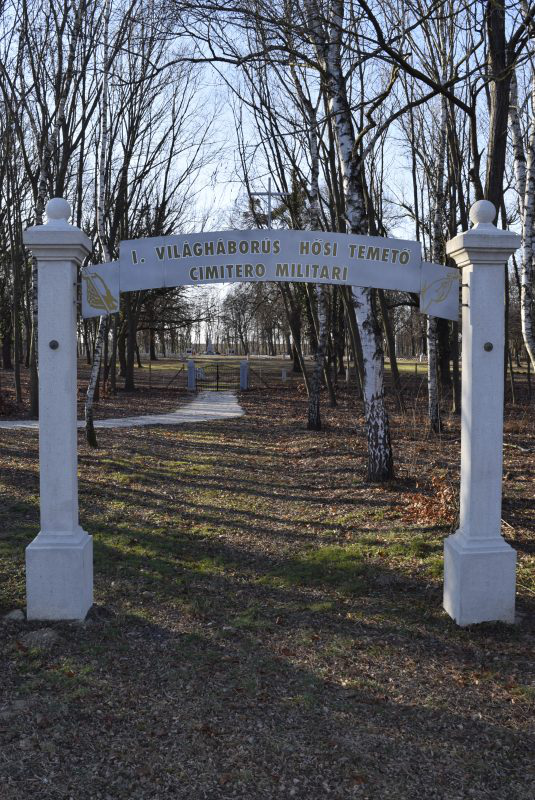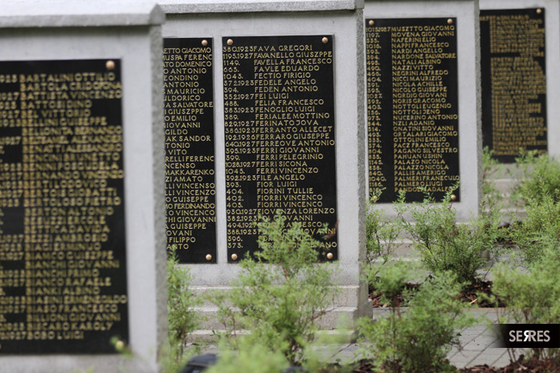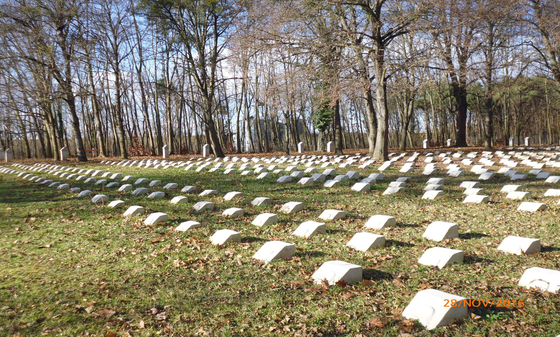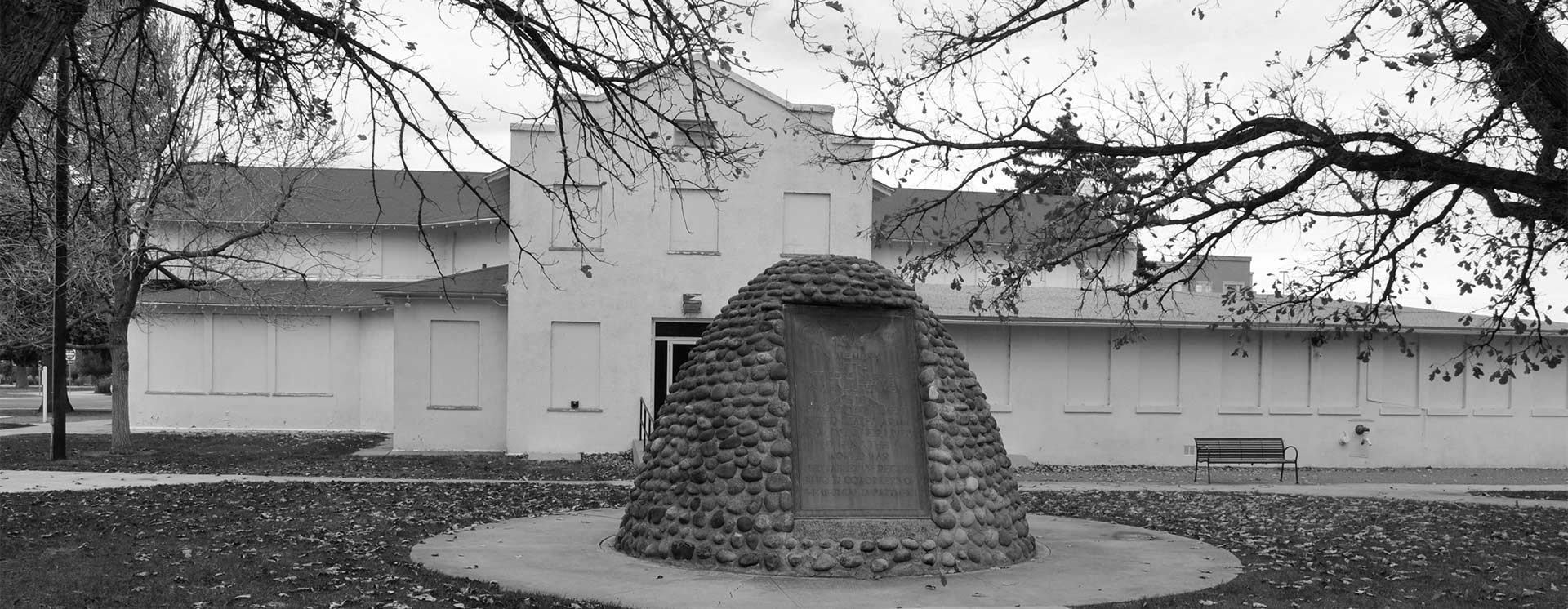
World War One Sites - The NETWORLD Database
WWI memorial and cemetery, Zalaegerszeg, Hungary
A. The memorial is an obelisc having on the top the turul bird, the mithical symbol of the Hungarian origin and the national coat of arms with the crown. The memorial display the names of the heroes of the 6th Huszár regiment. In August 1914 went to the front 1100 solders from huszár regiment from Zalaegerszeg and has battles in Galicia (Poland) agains the Russian armed troups.
B. The momorial of the 48th infantery is situated in Zalaegerszeg, Rákoczi street. The opening ceremony was in 1935, the memorial was made by Zsigmond Kisfaludi Strobl.
C. The Italian cemetery situated in Zalaegerszeg, Egervári u. 16. The cemetary is placed on the area of a former prisioner camp, having 1656 solders graves. The majority ot buried solders are Italians, but also Russian, Romanian, Serbian solders.
Hungary,
Type of WWI-heritage
- War monument
Dimensions
different dimensions
State of repair/preservation
well maintained
Historical WWI Context
A. On the commemorating obelisc 126 heroes names are mentioned , the opening ceremony was on the 20th of August 1922. The inscription was made by Boldizsár Marton teacher in the real gymansium as: «A Hősöknek, kik elestek a véres mezőkön, Az élők, kikben halhatatlan drága szellemük! Az elfelejtés — Halál, az emlékezés — Élet. Mi. sújtott magyarok, ezért ápoljuk emlékezeteteket s hívunk egyenkint magyar feltámadásra.»
Originaly the obelisc was established on the Horty square (October the 6th square). The 6th Huszár regiment was in battles from the 13 of August 1914 till the WWI ends on the Russian front. Took part in the Gorodoki battle, where almost half of the solders were lost. In the Lemberg battle covered the retreat of the 2. army. During October take part in the battle near the Carpat mountains. In February 1914 take part in battles in Galicia and Bukovina, near Stanislau. In June1915 served the 7 Austro Hungarian army occupying Zaleszcyk. During the Bruszilov invasion covered the retreat of the 7th army and later one was reorganised as infantery regiment.
B. The Austro -Hungarian 48. infantry regiment was established in 1798 with the headquarter in Zalaegerszeg. After 1867 the headquarter was moved to Nagykanizsa. The regiment fighted on the Italian front. The regiment was disbanded in 1918. The Hungarian poet Sándor Petőfi was a solders in the regiment.
C. The cemetery is situated on the former place of the WWI prisioner camp in Zalaegerszeg
Recent Images
Historical Images
State of legal protection
no data available
Owner
Zalaegerszeg city council
Kind of cultural use of WWI
Zalaegerszeg
(the available information is on the site www.utazzitthon.hu/latnivalo/zalaegerszeg)
Dísz square
TV tower
Aqua park, 8900 Zalaegerszeg, Fürdő Sétány 2,
Göcsej village museum , 8900 Zalaegerszeg, Falumúzeum u.
Göcsej museum 8900 Zalaegerszeg, Batthyány u. 2.
Exhibition room, 8900 Zalaegerszeg, Ady út 14.
Mária Magdolna church, 8900 Zalaegerszeg, Mindszenty tér 1.
The billet house, 8900 Zalaegerszeg, Széchenyi tér 5.
Nearby Zalaegerszeg you can find:
Azalea valley, 8900 Zalaegerszeg
Jánkahegyi belvedere, 8900 Zalaegerszeg, Jánkahegyi u.
Opening
no data available
Entrance Fee
no data available
Information regarding cities, villages, other touristic attractions (non-WWI) nearby
no data available
Accomodation
In Zalaegerszeg the available accomodations are: www.aranybarany.hu, www. kristofapartmanhotel.hu
www.beckscornermotel.hu
Public Transport
no data available
Further information sources
no data available
Other heritage sites nearby
Museums Private Collections
no data available
WWI memorial and cemetery, Zalaegerszeg, Hungary
46.848268673242240 16.850663197753192 fileadmin/res/images/layout/standar-marker.pngLocation
